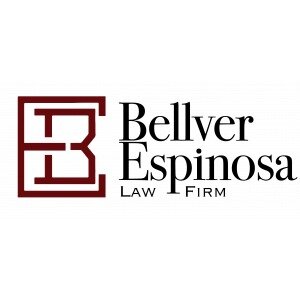Best Sexual Harassment Lawyers in Puerto Rico
Share your needs with us, get contacted by law firms.
Free. Takes 2 min.
Or refine your search by selecting a city:
List of the best lawyers in Puerto Rico
About Sexual Harassment Law in Puerto Rico
Sexual harassment in Puerto Rico is a serious issue that is addressed through a combination of federal and commonwealth laws. It refers to unwelcome sexual advances, requests for sexual favors, and other verbal or physical conduct of a sexual nature that affects an individual's employment, creates a hostile work environment, or interferes with work performance. Puerto Rico follows the federal guidelines under Title VII of the Civil Rights Act of 1964, which prohibits workplace discrimination, including sexual harassment. Additionally, local laws under Puerto Rico's Act No. 100 of 1959 and Act No. 17 of 1988 further address discrimination and workplace harassment, providing a framework for both prevention and legal recourse.
Why You May Need a Lawyer
There are several situations where individuals may seek legal assistance for sexual harassment issues:
- If you are experiencing harassment at work and the internal complaint procedures have not resolved the situation.
- If you need guidance on whether your experience qualifies as sexual harassment under the law.
- If you need help understanding your rights and how to protect them.
- When you're considering filing a lawsuit for compensation or damages.
- If you are an employer needing to ensure compliance with sexual harassment laws to protect your business.
Local Laws Overview
Puerto Rico has codified its stance against sexual harassment in the workplace through various legislative measures:
- Act No. 17 of 1988: Focuses specifically on prohibiting sexual harassment in employment settings, mandating employers to implement preventive measures and processes to handle complaints.
- Act No. 100 of 1959: Prohibits discrimination in employment, including acts of sexual harassment.
- Title VII of the Civil Rights Act: Being a U.S. territory, Puerto Rico adheres to federal laws that prohibit discrimination based on sex, including sexual harassment, in any workplace with 15 or more employees.
- Employers are required to make reasonable efforts to prevent and promptly correct any harassing behavior.
Frequently Asked Questions
What constitutes sexual harassment under Puerto Rico law?
Sexual harassment involves unwelcome sexual behavior that creates a hostile or offensive work environment, affects employment decisions, or hinders job performance.
Can I file a complaint anonymously?
While anonymous complaints can be made, they may be more challenging to investigate. It's recommended to provide enough information to facilitate a thorough inquiry.
What should I do if I'm sexually harassed at work?
Document the incidents, report the harassment to your supervisor or HR department, and seek legal advice if necessary.
Are there time limits to file a harassment claim?
Yes, both federal and local laws have specific time limits for filing claims, often requiring that complaints be lodged within 180 days from the incident.
How does Puerto Rico law protect against retaliation?
Both federal and commonwealth laws prohibit employers from retaliating against individuals who report harassment or participate in investigations.
What remedies are available if I win my harassment case?
Remedies may include reinstatement, compensation for lost wages, damages for pain and suffering, and appropriate legal fees.
Is sexual harassment training mandatory for employers?
Yes, Puerto Rican laws require that employers provide training to prevent workplace harassment and inform employees about their rights and responsibilities.
Can sexual harassment occur outside the workplace?
Yes, if the behavior affects the work environment or employment conditions, it can constitute harassment under the law.
What if the harassment is perpetrated by a client or customer?
Employers are responsible for maintaining a safe work environment and must address harassment from any source, including clients or customers.
How confidential is the complaint process?
Employers should handle complaints discreetly, sharing information only on a need-to-know basis to protect all parties involved and ensure a fair investigation.
Additional Resources
If you need further information or support, consider the following resources:
- Puerto Rico Department of Labor: Provides resources and guidance on labor laws and workplace rights.
- EEOC (Equal Employment Opportunity Commission): A federal agency that enforces laws against workplace discrimination.
- Legal Aid Society of Puerto Rico: Offers legal assistance to individuals who cannot afford private counsel.
- Local NGOs: Reach out to organizations that advocate for workers' rights and offer support to harassment victims.
Next Steps
If you are in need of legal assistance for issues related to sexual harassment, consider the following steps:
- Consult with a lawyer specializing in employment law to discuss your case and review your rights and options.
- Gather and organize any evidence or documentation related to the alleged harassment, including emails, messages, and witness statements.
- File a formal complaint with your employer, if you have not already done so, to ensure an official record of the incident is maintained.
- Consider reaching out to a local advocacy group for additional support and guidance.
- If needed, file a formal complaint with the appropriate governmental body, such as the EEOC or the Puerto Rico Department of Labor.
Lawzana helps you find the best lawyers and law firms in Puerto Rico through a curated and pre-screened list of qualified legal professionals. Our platform offers rankings and detailed profiles of attorneys and law firms, allowing you to compare based on practice areas, including Sexual Harassment, experience, and client feedback.
Each profile includes a description of the firm's areas of practice, client reviews, team members and partners, year of establishment, spoken languages, office locations, contact information, social media presence, and any published articles or resources. Most firms on our platform speak English and are experienced in both local and international legal matters.
Get a quote from top-rated law firms in Puerto Rico — quickly, securely, and without unnecessary hassle.
Disclaimer:
The information provided on this page is for general informational purposes only and does not constitute legal advice. While we strive to ensure the accuracy and relevance of the content, legal information may change over time, and interpretations of the law can vary. You should always consult with a qualified legal professional for advice specific to your situation.
We disclaim all liability for actions taken or not taken based on the content of this page. If you believe any information is incorrect or outdated, please contact us, and we will review and update it where appropriate.
Browse sexual harassment law firms by city in Puerto Rico
Refine your search by selecting a city.









